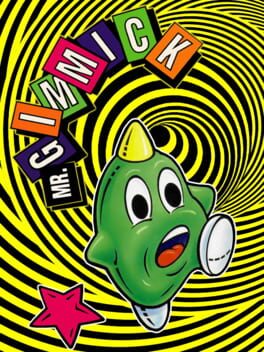Is it merely a fleeting trick, or a carefully crafted strategy? The word gimmick, often whispered with a hint of skepticism, carries a weight that belies its seemingly playful nature, and understanding its nuances is crucial for navigating the ever-changing landscape of marketing, innovation, and even everyday interactions.
The term gimmick is ubiquitous, peppered across conversations, news articles, and advertising campaigns. Its presence signifies a deliberate attempt to capture attention, to differentiate, and ultimately, to influence. But the judgment cast upon a gimmick can range from harmless amusement to outright condemnation. Is it a harmless novelty, or a deceptive ploy? The answer often lies in the context, the intention, and the lasting impact of the innovation itself.
| Feature | Details |
|---|---|
| Word Origin: | Uncertain; possibly from a variation of gimcrack, meaning a showy but worthless thing. |
| Pronunciation: | /ˈɡɪmɪk/ (in most English dialects) |
| Core Meaning: | A device, scheme, or technique designed to attract attention or increase appeal, often with little intrinsic value. |
| Key Characteristics: | Novelty, Uniqueness, Attention-grabbing, Potentially superficial, Designed for impact |
| Contexts of Use: | Marketing, Advertising, Retail, Entertainment, Technology, Games, Politics |
| Synonyms: | Trick, Device, Gadget, Scheme, Stratagem, Novelty, Contrivance, Ruse, Stunt |
| Examples: | A self-stirring mug, a free gift with purchase, a politician's memorable catchphrase, a special effect in a movie. |
| Related Terms: | Gimcrack, Gadget, Marketing, Advertising, Novelty item, Stunt |
| Potential Drawbacks: | Can be perceived as insincere, Can distract from the core product/service, Short-lived appeal, May damage credibility. |
| Positive Aspects: | Can attract initial attention, Can create a memorable experience, Can differentiate from competitors, May generate buzz. |
| Examples in Sentences: | The company's new product launch was filled with gimmicks, but lacked substance. The magician's trick was nothing more than a clever gimmick. The restaurant's gimmick of serving food in unusual containers drew crowds. |
| Origin and Etymology: | The word gimmick entered the English language around the early 20th century, with its roots shrouded in some obscurity. While exact origins are debated, some linguists suggest it may be a derivative of the word gimcrack, referring to a showy but insignificant object. Others propose its origin in the world of vaudeville, where the term could describe a performer's trick or novelty. The term has since found its way into popular culture, with broad usage across various fields. |
The Oxford Advanced Learner's Dictionary defines a gimmick as a noun: a trick or device intended to attract attention or interest, but that has no real value or purpose. This definition highlights the core tension inherent in the word: the allure of attracting attention versus the potential lack of substance. The Cambridge Dictionary echoes this sentiment, describing a gimmick as something invented to attract attention or interest, but that has no real value or purpose. The Collins English Dictionary defines a gimmick as an unusual and unnecessary feature or action whose purpose is to attract attention or publicity.
Merriam-Webster offers a slightly more specific definition, highlighting the possibility of a more mechanical element: a mechanical device for secretly and dishonestly controlling gambling apparatus. This definition emphasizes the potential for manipulation and trickery, suggesting that a gimmick can be used to deceive or gain an unfair advantage. Dictionary.com broadens the definition, stating a gimmick is an ingenious or novel device, scheme, or stratagem, especially one designed to attract attention or increase appeal.
The core of the gimmick lies in its ability to stand out. In the cutthroat world of marketing and product development, differentiation is crucial. A product needs to capture consumer attention in a crowded marketplace, and a well-executed gimmick can be just the thing. However, the inherent risk is the superficiality. A gimmick that lacks substance can quickly backfire, leaving consumers feeling misled or disappointed. The product's true qualities might be overlooked in the wake of the superficial trickery.
The application of gimmicks extends far beyond the realm of retail. In entertainment, special effects, unique plot devices, or casting choices can be considered gimmicks. These elements are designed to create a buzz, draw audiences, and generate discussion. Similarly, the political arena is rife with gimmicks, from catchy slogans to carefully crafted photo opportunities. The goal is always to capture attention and sway public opinion. However, the effectiveness of these gimmicks is often subject to scrutiny. Do the tactics reflect substance, or merely style over the substance?
One must consider the context. A seemingly trivial gimmick in a toy might be welcomed for its playful nature, adding to the overall enjoyment. However, the same gimmick employed in a serious product intended to deliver value might elicit the opposite response. A restaurant's unique serving style might be entertaining, but if the food quality suffers as a result, the gimmick will quickly be forgotten. A political slogan may create enthusiasm, but if the policies are not grounded in reality, the gimmick's power will quickly fade.
The success of a gimmick also depends on its target audience. What might appeal to one demographic could be received poorly by another. The cleverness and the execution play a critical role. A gimmick that is clumsy or transparent is unlikely to succeed. It would be quickly exposed as such.
The lifespan is important. A well-conceived gimmick can generate initial interest and boost short-term sales, but if the novelty wears off and the product or service doesn't stand on its own merits, its future may be in jeopardy. The key is to ensure that the gimmick complements the core offering, and does not detract from it. The best gimmicks often serve a purpose, adding value or improving the customer experience.
Synonyms for gimmick include trick, device, gadget, scheme, stratagem, novelty, contrivance, ruse, and stunt. These words all highlight aspects of the gimmick concept, emphasizing deception, innovation, or attention-grabbing tactics. The choice of words depends on the specific context and the nuanced meaning being conveyed.
In marketing, examples of gimmicks abound. Free gifts with purchase, unique product packaging, unusual flavors or features, and celebrity endorsements can all be seen as gimmicks. The effectiveness of these strategies depends on the brand, the audience, and the execution.
In conclusion, gimmick is a word that encapsulates a range of meanings, spanning from harmless novelty to potentially deceptive tactics. Understanding the word's nuances, the motivations behind its use, and the potential consequences is essential for navigating the complexities of modern marketing, product development, and beyond. It highlights the importance of carefully balancing innovation and substance, seeking to captivate attention while delivering authentic value. The verdict on any particular gimmick depends on its execution, the intentions behind its use, and, ultimately, its ability to resonate with its intended audience.



